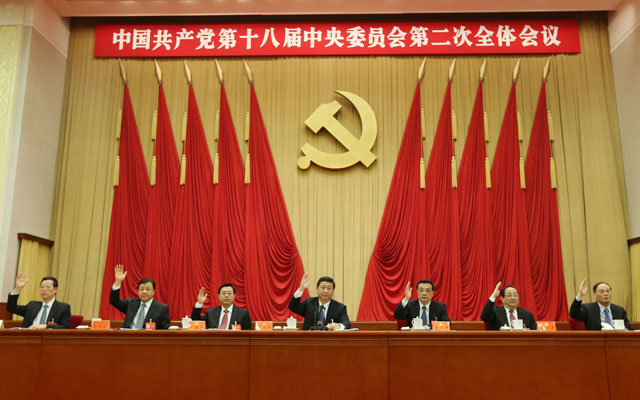“China Dream”: Rejection or Revival?
Chinese Communist Party (CCP) General Secretary and Chinese President Xi Jinping has talked a great deal about the “China Dream.” It remains to be seen, however, whether this dream is a call for national renewal or for revanchism and Chinese nationalism at the expense of its neighbors.
Soon after assuming leadership of the CCP at the 18th Party Congress, Xi gave a speech that defined the “Chinese Dream” as “achieving the great revival of the Chinese nation.” As Xi observed, “Realizing the revival of the Chinese nation is a glorious but arduous, task, requiring generation after generation of Chinese people striving together. Empty talk hurts the nation; real achievements benefit the state.”
This theme of a Chinese Dream has since been heavily discussed in the Chinese press and re-emerged in the ongoing National People’s Congress (NPC), where the new governmental leadership is being unveiled. Indeed, the Chinese paper Global Times observes that this is a key phrase for the incoming Xi government.
The Global Times observed that an essential part of “the China dream” is to counter corruption and improve social fairness. This echoes Hu Jintao’s repeated calls for a “harmonious society,” and if this were the centerpiece of Xi’s dream, Xi’s tenure will likely see major reforms that would make China a welcome addition to the international economy and community.
Yet the Global Times piece goes on to warn that foreigners are hoping to exploit seams in Chinese society. While visiting southern China and talking about the China Dream, Xi warned that the military must remain firmly in the hands of the CCP to prevent any possibility of a replay of the Soviet experience. This suggests that the China Dream is not necessarily one that sees the outside world as a friendly partner.
Meanwhile, a Chinese book entitled The China Dream has enjoyed significant sales. It argues that China should seek military dominance, including over the United States. It is not clear that Xi drew upon this volume for inspiration, but the NPC passed yet another double-digit increasein Chinese military spending, underscoring the ongoing Chinese military modernization effort.
Consistent with this more disturbing, revisionist approach, Chinese officials have announcedthat they will soon dispatch a survey team to the disputed Senkaku islands, implying that the Chinese will soon place people on the (currently uninhabited) islands. This will certainly heighten tensions with Japan, much as China’s more assertive stance over the South China Sea is antagonizing China’s southeastern neighbors.
With the announcement that Yang Jiechi will be the new state councilor for foreign affairs and Wang Yi will be the new foreign minister—neither of whom is on the CCP Politburo, much less the all-important Politburo Standing Committee—Xi’s China Dream will likely be little influenced by the more experienced foreign policy hands in the Chinese system. This bodes ill for China’s neighbors and for the United States.
